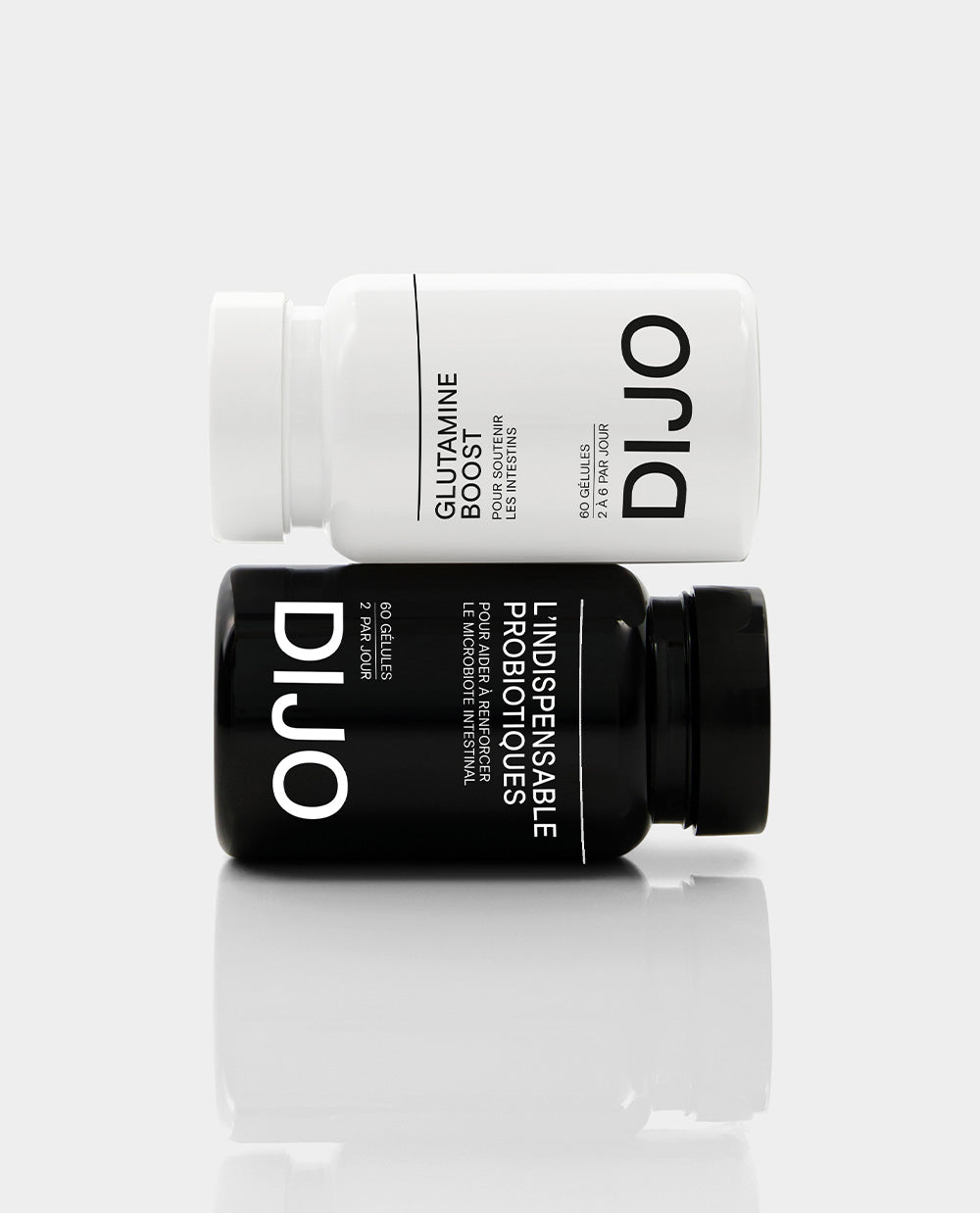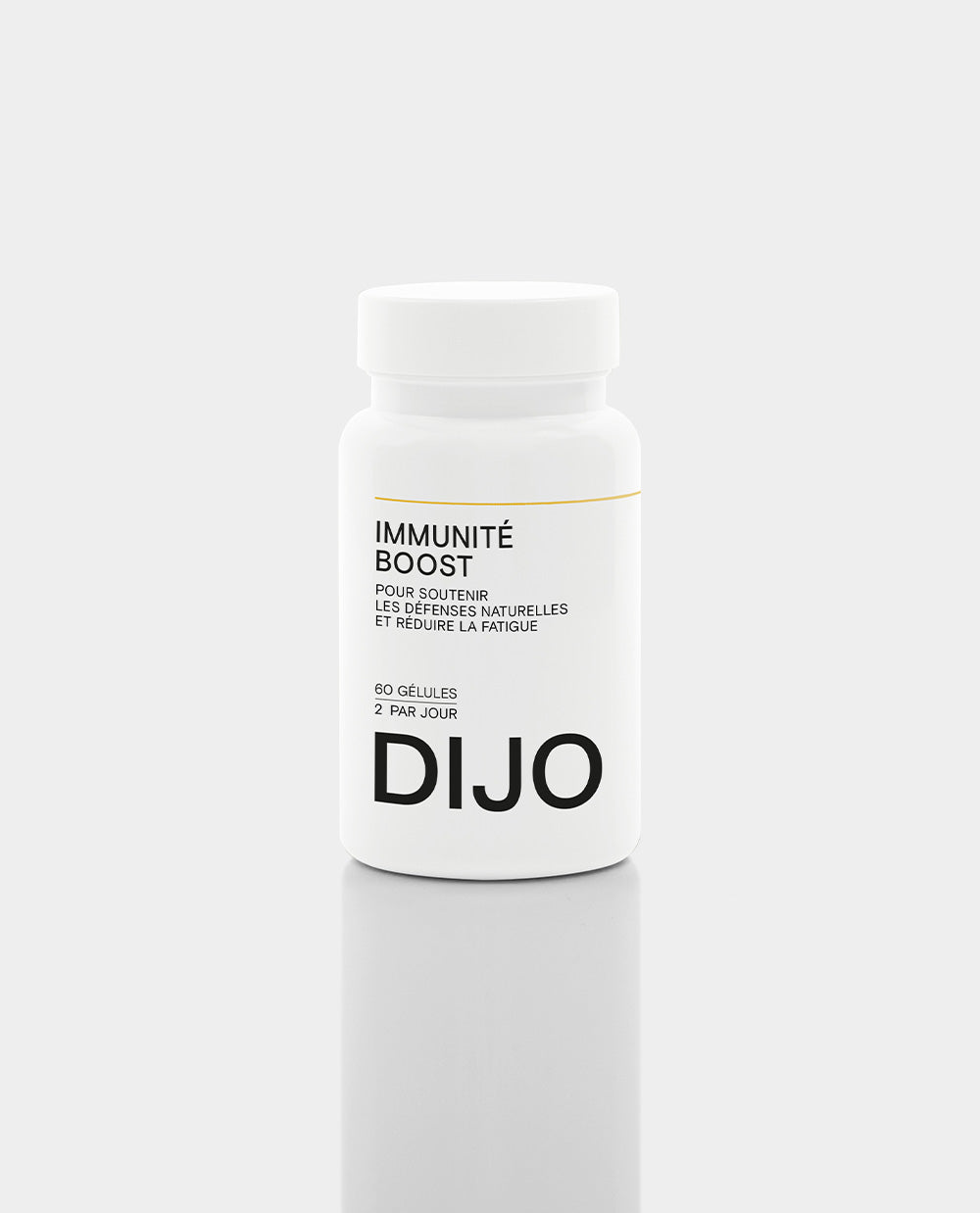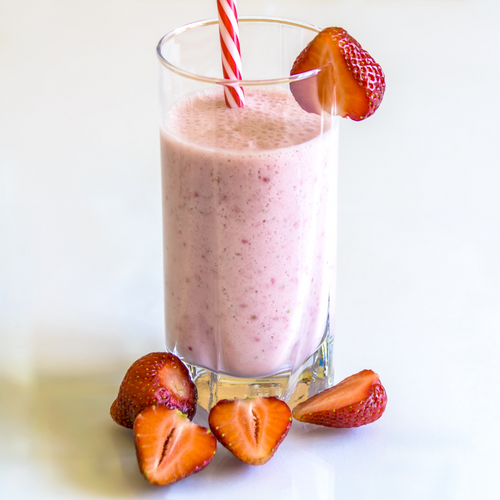The immune system is a set of organs, tissues and molecules ensuring the body's defense. It has a central role in the functioning of our body because it allows us to fight against external aggressions and anomalies that may arise.
It is closely linked to the digestive flora, called intestinal microbiota . This set of microorganisms will stimulate the production of immune cells and compounds.
What you must remember
- The immune system is the body's first defense mechanism against pathogens
- It is closely linked to the intestinal microbiota which supports the production of immune cells
- To strengthen a weak immune system, it is important to find the cause
- Intense fatigue, recurrent digestive disorders, difficulty fighting infections or healing are signs of a weak immune system.
- A balanced lifestyle, pampered digestive flora and respected hygiene rules are essential to support the immune system.
- Taking food supplements may be recommended to strengthen it
Download our infographic “ Boost your immune system ”.
Causes of a weak immune system
The immune system therefore has many benefits for our health. However, when its action is altered, the consequences on the body can be numerous. Here are some examples of causes of a weak immune system:
#1 – Severe fatigue
A lack of or impaired sleep leads to fatigue in the body. This causes a slowdown in metabolism and body function. The immune system is weakened and, therefore, less efficient.
Additionally, the presence of a deficit or deficiency may be the cause of this continued fatigue.
#2 - Mental or psychological state: stress and anxiety
An altered mental state (stress, anxiety, depression) causes excessive hormonal production, which tires the immune system. Chronic stress leads to a decrease in the production of immune molecules called inflammatory cytokines. These molecules have anti-pathogenic effects in order to avoid attacks on the body.
#3 - Consumption: food, alcohol, tobacco
Current food consumption has a strong impact on our health because most of the products consumed are industrial or even ultra-processed. They therefore contain, for some, numerous additives which have a direct action on the microbiota and alter the intestinal wall . This leads to an increase in intestinal permeability and toxic compounds can then pass through this wall and create inflammation, thus causing intensive work on the immune system which, ultimately, weakens.
Likewise, excessive and regular consumption of alcohol and tobacco creates inflammation in the body which causes a loss of immune cells.
#4 – Seasonalities
Depending on the season, our resistance to disease is not the same. We know that heat is one of the parameters in the fight against pathogens. This is why it is more common to observe epidemics during the colder seasons (fall and winter ).
#5 – The pathological condition
The presence of inflammation in the body can alter the functioning of the immune system and can be due to our lifestyles but also to a pathology. Some diseases are called autoimmune , which means that immune cells attack the organs or tissues of their own body. These diseases include type 1 diabetes, multiple sclerosis, Crohn's disease and Graves' disease.
#6 – Physiological condition
Finally, the physiological condition can also lead to a weak immune system. During the first months of pregnancy , to avoid rejection by the mother's body, the fetus produces molecules which will weaken the mother's immune system.
Likewise, with advancing age, the immune system becomes less and less efficient. Older people are therefore more prone to infections and diseases.
Signals of a weak immune system
#1 – Severe fatigue
Fatigue can be both the cause and the consequence of a weak immune system. Indeed, hard work of the immune system can cause a weakening of the body which becomes overloaded. This can ultimately lead to chronic fatigue .
#2 – Recurring digestive problems
When the intestinal microbiota is altered, the immune system is strongly activated and weakens over time. This weakening creates a more intense imbalance in the microbiota. It is therefore a real vicious circle.
The alteration of the microbiota leads in particular to numerous digestive disorders: gas, bloating, alternating constipation and diarrhea.
#3 – Repeated infections or illnesses
Getting sick occasionally during the winter is not necessarily a sign of a weak immune system. Conversely, if it worsens, with repeated colds, tonsillitis, bronchitis, flu, this can be a warning sign.
#4 – Difficulty healing
Wounds that heal poorly or slowly or recurring bruising can also be warning signs of a weak immune system.
This can be due to many causes. It is therefore important to consult a doctor if this occurs regularly.
5 strategies to strengthen your immune system
To strengthen your immune system , several strategies can be implemented.
#1 – Adopt a healthy lifestyle
A healthy lifestyle is built on several aspects:
- Sufficient and restorative sleep : between 7 and 9 a.m. in a calm and dark environment
- A balanced and diversified diet with good quality products, seasonal and local fruits and vegetables and few ultra-processed products
- Optimal hydration : 1.5L to 2L of drinking water per day to ensure the body's basic functions
- Moderate alcohol consumption : maximum 1 drink per day and not every day
- Regular physical activity : walking, household chores, cycling, running, weight training, yoga, pilates, etc.
- Stress regulation : sophrology, meditation, yoga, cardiac coherence
#2 – Take care of your digestive flora
In order to strengthen a weak immune system, it is essential to take care of your digestive system through consolidation of the intestinal microbiota . Here are some tips for taking care of it:
- Consume foods rich in probiotics : (lacto)fermented foods or products: yogurt, cheese, kefir, kombucha, sauerkraut, fermented vegetables, tofu, kimchi, sourdough bread, beer (in moderation), etc.
- Consume enough fiber (30g per day): legumes (lentils, beans, peas), whole grains (rice, quinoa, wheat, rye, oats), lightly cooked, minimally processed or dried fruits and vegetables, oilseeds (almonds). , walnuts, hazelnuts, cashews, peanuts), potatoes, seeds (chia, poppy, flax).
- Stay well hydrated to facilitate digestion.
At DIJO, we have a basic range dedicated to the well-being of the stomach. Our essential probiotics combined with the action of glutamine will help balance the digestive flora while strengthening the intestinal wall. These products are grouped together in our concrete intestines pack and are to be taken as a cure for long-lasting effects. The high concentration of probiotics and the carefully selected strains will provide rapid beneficial effects adapted to all digestive, immune and metabolic problems.
#3 – Start a course of immunity food supplements
Food supplements, as their name suggests, complement and reinforce the actions of a balanced lifestyle. Due to the depletion of micronutrients in our foods, it is sometimes essential to add specific immunity food supplements to your routine which include micronutrients having a direct action on the immune system:
- Vitamins A, C, D stimulate the body's natural defenses, fight against fatigue and have an antioxidant and anti-inflammatory action.
- Iron contributes to the optimal functioning of the immune system by ensuring proper proliferation of immune cells.
- Zinc contributes to the proper development and functioning of the immune system. Zinc deficiency leads to decreased growth of immune cells, lymphocytes, and affects the production of cytokines. It also has an antioxidant function.
- Selenium has a strong antioxidant action while increasing the production of antibodies.
At DIJO, we have developed our Prébio energy and immunity , which brings together the action of prebiotics, real food for the good bacteria of our digestive flora but also micronutrients and plants which will help reduce fatigue and strengthen the natural defenses of the body. 'body.
#4 – Prevent through vaccination
In prevention, there are also more medical preventions. Preventive vaccination is a very good way to facilitate the action of the immune system. The principle of preventive vaccination is simple: inject an attenuated or inactive substance which will allow the immune system to defend itself against a pathogen (bacteria or virus) and then produce memory immune cells. These memory cells allow the body to defend itself more easily and quickly if an infection from the same pathogen occurs.
#5 – Respect hygiene rules
In order to best prevent and reduce the risk of infection, basic hygiene rules must be respected:
- Wash your hands regularly with soap and water or hydroalcoholic gel
- Sneeze into a tissue or your elbow
- Avoid frequent contact with sick people
Sources :
[1] Yang B. et al. (2019). Effects of regulating intestinal microbiota on anxiety symptoms: A systematic review. General psychiatry, 32(2), e100056. https://doi.org/10.1136/gpsych-2019-100056
[2] Wimalawansa SJ (2023). Infections and Autoimmunity-The Immune System and Vitamin D: A Systematic Review. Nutrients, 15(17), 3842. https://doi.org/10.3390/nu15173842
[3] Sleep ⋅ Inserm, Science for health, (2017), consulted on https://www.inserm.fr/dossier/sommeil/
[4] Munteanu, C., & Schwartz, B. (2022). The relationship between nutrition and the immune system. Frontiers in nutrition, 9, 1082500. https://doi.org/10.3389/fnut.2022.1082500
[5] Vaccines and vaccinations, an individual and collective benefit, (2022), consulted on https://www.inserm.fr/dossier/vaccins-et-vaccinations/
























